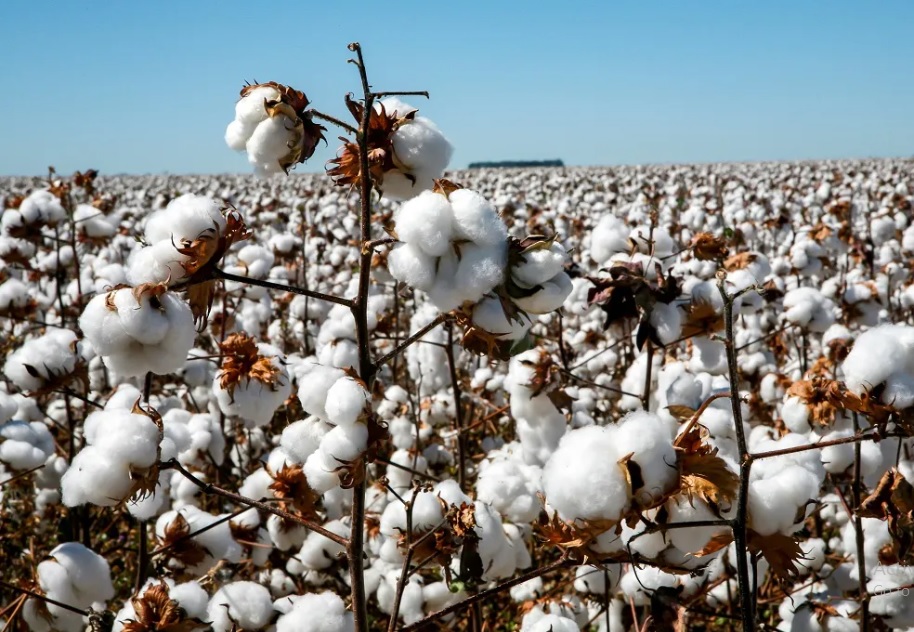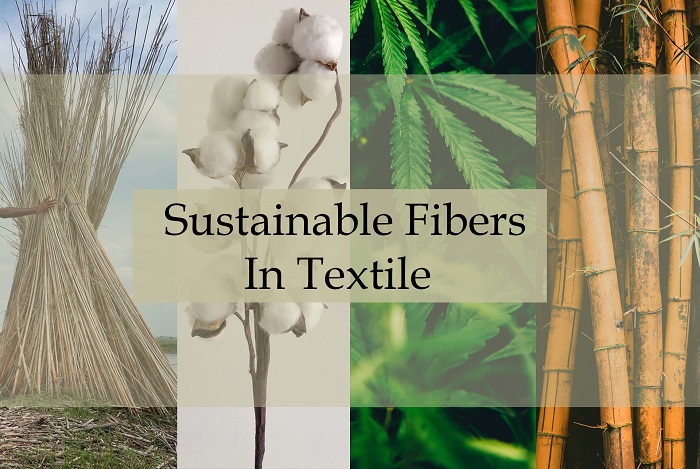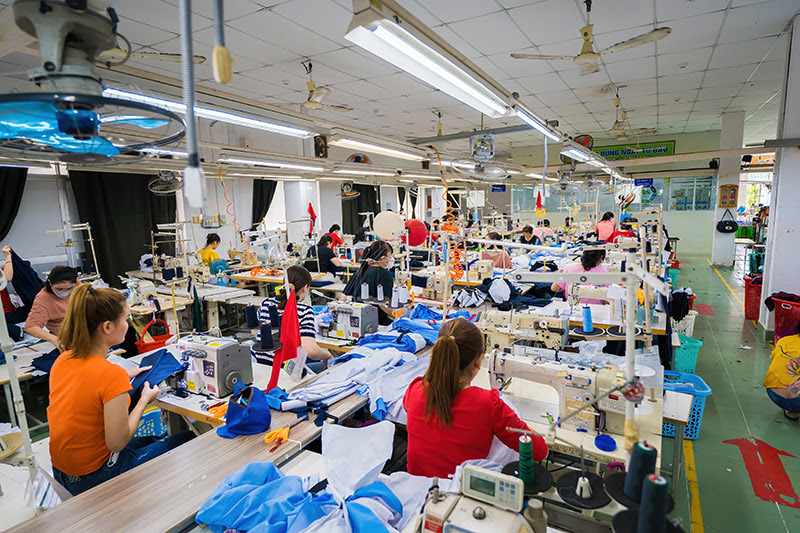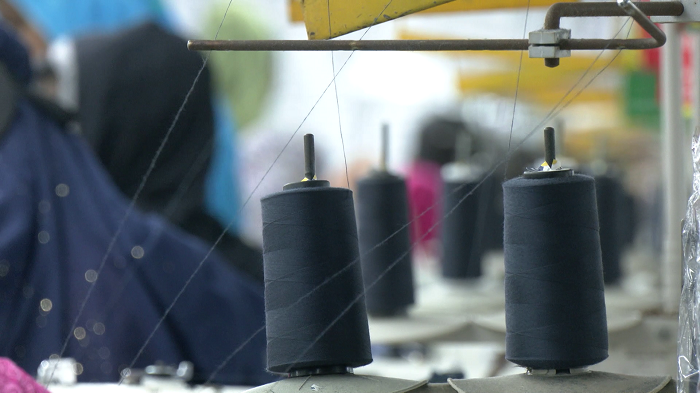Fueled by firm seller quotations and strong demand for high-quality batches, particularly towards the end of the month, Brazil witnessed a notable rise in cotton prices during November 2024. This upward trend was further supported by positive global market dynamics, says Centre for Advanced Studies on Applied Economics (CEPEA).
From October 31 to November 29, the CEPEA/ESALQ cotton index (payment in 8 days) increased by 3.35 per cent, closing at BRL 4.0654 (~$0.67) per pound on November 29.
The market was shaped by a combination of domestic and international demand. As the year draws to a close, traders have prioritised fulfilling term contracts, though there was still active negotiation to address immediate supply needs.
In the first 14 producing days of November, Brazil reported a 15.1 per cent decline in cotton exports to 215.4,000 tons of cotton, compared to the same period in 2023. However, daily average export volume of the country increased by 21.3 per cent Y-o-Y, indicating potential total export volume of 292.3000 tons by the month's end, based on CEPEA’s latest fortnightly report.
Looking ahead, the National Supply Company (CONAB) projects, cotton production in the 2024-25 season is estimated to increase by 1.06 per cent to 3.704 million tons. This growth is attributed to an anticipated expansion in the cultivation area and a modest rise in productivity.
Domestic cotton consumption is also expected to increase by 1.43 per cent from October 2024 levels and a 2.16 per cent rise compared to the previous year. Exports are predicted to follow an upward trajectory, further strengthening Brazil’s role in the global cotton market.
Expanding its eco-friendly offerings to help retailers meet this growing demand, fully integrated textile manufacturer Panther Denim has launched the Planet Indigo collection offering a sustainable alternative to conventional denim. Developed in partnership with Shuise Dyeing House, this collection combines traditional dyeing techniques with modern sustainability practices to engage both consumers and denim communities.
Tim Huesemann, Sales Director, Panther Denim, says, derived from persimmon, the newly added kaki dye to the collection is a vibrant shade of range that leans slightly toward red—with the potential for additional natural dye colors in the future.
The unique persimmon hue is derived from its tannins, traditionally known in Japan as Kakishibu. Highly valued among denim enthusiasts, this natural dye has been used in the Asian market for years, offering a distinctive fading effect similar to indigo. Like other dyes of the company, the new kaki dye is entirely chemical-free, and any leftover dye residue can be composted to enrich the farm.
As a denim mill, Panther Denim is dedicated to providing the most advanced and eco-friendly fibers and elastane options in collaboration with innovative sustainable fiber suppliers. This provides the company’s customers with an access to materials that meet the highest sustainability standards, helping them stay competitive in the market.
Chinese e-commerce platforms Temu and Shein have temporarily halted operations in Vietnam as they work to comply with government requirements to register their services. Vietnam's trade ministry had set a November deadline for the platforms to register or face suspension, citing concerns over deep discounting, potential counterfeit sales, and unfair competition with local businesses.
Temu, owned by PDD Holdings, entered the Vietnamese market in October, while Shein has operated there for over two years. The trade ministry confirmed that Temu’s operations would remain suspended until its registration is approved. Temu stated it had submitted the required documents and is cooperating with Vietnamese authorities, but no timeline has been given for resumption.
Shein’s Vietnamese website was also unavailable, although the company noted that customers could still shop through its international platform. Shein reiterated its commitment to complying with local regulations.
The suspensions come amid broader regulatory tightening in Vietnam’s e-commerce sector. Last week, the Vietnamese parliament passed changes to end tax exemptions on low-value imported goods and impose value-added tax (VAT) on local operators of foreign e-commerce platforms. The finance ministry is moving to eliminate the longstanding tax break, signaling significant implications for foreign e-commerce players.
Temu also faces challenges in Indonesia, where regulators have requested its removal from app stores to protect local merchants. Both companies are under scrutiny as Southeast Asian nations seek to regulate the rapidly growing e-commerce market.
A new report, The State of Sourcing Report: Sourcing and Sustainability in 2025, by Source in collaboration with Insider Trends, sheds light on evolving sourcing practices and sustainability efforts among UK retailers. Surveying businesses from small enterprises to large corporations, the report underscores advancements in global sourcing while revealing fragmented sustainability approaches.
Key findings indicate that 84 per cent of businesses with over 50 employees and 71 per cent of smaller businesses source internationally, with China (48.8 per cent), the UK (41.6 per cent), and India (36.8 per cent) leading sourcing destinations. Smaller businesses prioritize local sourcing due to limited capacity and cost considerations. Larger companies, meanwhile, extend their global footprint to regions like Southeast Asia and Turkey.
Sustainability remains a mixed priority. While 69.23 per cent of respondents report progress, the sector faces barriers including limited resources, regulatory complexity, and greenwashing concerns. Smaller businesses lead in authentic leadership on sustainability, with over 50 per cent demonstrating dedicated leadership. Larger retailers, however, often allocate greater resources to structured sustainability initiatives.
Cost efficiency (45.6 per cent), innovation (35.48 per cent), and supply chain risk mitigation (32.26 per cent) drive sourcing decisions. However, sustainability ranks higher for smaller businesses, reflecting consumer demand for eco-friendly alternatives.
Despite consumer pressure and impending regulations, such as the UK’s Digital Markets, Competition and Consumers Act (effective April 2025), which penalizes greenwashing, many businesses are hesitant to make bold commitments. Almost half of respondents lack plans to increase sustainability funding, citing competing priorities and financial constraints.
The report calls for systemic changes, including clearer regulations, financial incentives, and collaborative efforts across the industry. It emphasizes that addressing sustainability in isolation hampers progress.
Suzanne Ellingham, Sourcing Director at Source, highlights, “Collaboration, transparency, and innovation are key to balancing environmental goals with business realities. By pooling resources and embracing partnerships, the industry can create meaningful change by 2025.”
The findings will be explored during an online webinar on December 10th, as businesses strive to align sustainability with profitability in an increasingly complex global market.
To tackle the denim industry’s overproduction crisis, brands Diesel and Lee have launched their second collaborative collection, Titled, ‘Diesel Loves Lee,’ the collection offers jeans made from upcycled deadstock.
Each pair of jeans in the limited-edition Diesel Loves Lee collection is made from existing materials sourced from both brands’ unsold stock. Half of each pair of jeans is made from Diesel materials while the other half is made from Lee materials.
Created with one-of-a-kind Frankenstein-ed designs, these denims are created using a, a dark blue wash that is stone-bleached to harmonise tone, and then overdyed with dark beige pigments for added depth. The jeans are finished with a raw-edged side seam and slightly frayed edges.
The collection offers two genderless straight leg styles and two women’s bootcut jeans. Available in sizes ranging from XS-XL, these denims retail for $350.
Launched in December 2023, the Diesel Loves Lee concept is a call-to-action for the denim community to share materials, manufacturing and resources to represent the ‘power of denim to unite us all.’
Diesel and Lee also contributed €100,000 (approximately $105,113) to the OTB Foundation as a part of this collaboration to benefit projects with the UNHCR, the UN Refugee Agency.
A leading fashion company specialising in designing, sourcing, and marketing apparel and accessories, G-III Apparel Group continues to navigate a challenging market with resilience and strategic initiatives.
In Q2 FY24, the company’s revenues declined by 2 per cent Y-o-Y to $644.8 million. However, its adjusted earnings per share (EPS) increased by $0.52 as against projections of $0.25. GII’s revenues in Q1 FY24 grew by 0.5 per cent totaling $609.7 million while its adjusted EPS increased by $0.12, prompting an upward revision of its full-year guidance.
The company’s growth is attributed to its focus on owned brands and new partnerships. Its owned brands, DKNY and Karl Lagerfeld, reported double-digit growth during the quarter, including a remarkable 50 per cent surge in North America. The relaunch of Donna Karan has further driven higher average unit retail (AUR) and improved sell-through rates.
The company has also signed a global licensing agreement with Converse for men’s and women’s apparel, set to launch in Fall 2025. This partnership is projected to generate $200 million in revenue, offering significant growth potential and enhancing G-III’s brand portfolio.
G-III is also expanding internationally by acquiring a 12 per cent stake in the All We Wear Group (AWWG), which it plans to grow to 20 per cent. This partnership aims to accelerate the expansion of key brands—Karl Lagerfeld, DKNY, and Donna Karan—in Spain, Portugal, and India.
Additionally, G-III plans to add over 2,500 new points of sale in department stores, further driving growth in the latter half of FY24. With a strong focus on optimising its portfolio and securing high-profile partnerships, G-III is positioning itself for sustained growth in a dynamic fashion market.
A Madrid-based producer of recycled cotton fiber, Recover aims to expand by launching a new manufacturing facility in Vietnam by early 2025.
To be located in the Dong Nai province, the state-of-the-art facility will leverage Recover’s advanced recycling technology to enhance fiber recovery in Vietnam, the world’s third-largest textile exporter.
Strategically selected for its proximity to textile waste sorting and manufacturing operations, the facility helps reduce logistics costs and environmental impact. It allows Recover to supply materials to major textile production markets with more efficiency.
Spanning across 14,000 sq m, the facility is scheduled to house two cutting-edge recycling lines with an annual production capacity of 10,000 tons. Additionally, it will feature a dedicated laboratory to ensure consistent product quality and drive continuous innovation in processes and materials.
The factory will also integrate RMix, Recover’s innovative solution for recycling cotton-polyester blends without separating fibers. This breakthrough technology addresses a long-standing challenge in poly cotton recycling and offers significant energy efficiency benefits, supporting more sustainable practices.
By introducing the company’s advanced technology in Vietnam, Recover not only enhances its service to customers by expanding its manufacturing facility but also makes a transformative shift towards circularity in Vietnam’s textile industry, says Anders Sjoblom, CEO.
A family-owned company with a 75-year legacy in textiles, Recover has been a pioneer of large-scale fiber recycling. Having established its second manufacturing facility in Bangladesh in 2022, the company continues to lead the way in sustainable textile solutions.
Chinese company, Bangladesh BaoRui Textile plans to set up a composite textile manufacturing facility in the Mongla Export Processing Zone (EPZ) with an investment of $19.53 million. To generate approximately 1,505 jobs for local Bangladeshi workers, the project aims to produce 10 million pounds of raw yarn, 6 million pounds of knitted fabric, and 1 million garment pieces annually.
Huang Hua, Managing Director, Bangladesh BaoRui Textile signed the investment agreement with Md Ashraful Kabir, Member-Investment Promotion Team, Bangladesh Export Processing Zones Authority (Bepza), during a ceremony held at the Bepza Complex in Dhaka.
Expressing an optimistic view of the project, Major General Abul Kalam Mohammad Ziaur Rahman, Executive Chairman, Bepza, highlighted Bepza’s dedication to creating a secure and supportive environment for investors.
Export earnings from Bangladesh's readymade garment (RMG) sector grew by 12.34 per cent Y-o-Y to $16.11 billion in the first five months spanning July-November’24. This led to the country’s overall exports growing by 11.76 per cent, according to the Export Promotion Bureau (EPB).
In November 2024, Bangladesh’s RMG exports increased by 16.25 per cent to $3.30 billion as against $2.84 billion in November 2023. The segment witnessed a monthly growth rate of 2.89 per cent in July, 7.20 per cent in August, 14.61 per cent in September, and 22.80 per cent in October.
Within RMG, the export earnings from the knitwear sector grew by 12.23 per cent to $8.94 billion, while earnings from the woven subsector increased by 12.48 per cent to $7.17 billion. Meanwhile, export earnings from the home textile sector grew by 5.03 per cent to $326.83 million.
According to Md Anowar Hossain, Vice Chairman, EPB, this growth in export earnings by Bangladesh is attributed to several factors including seasonal peaks in RMG shipments, clearing of backlog orders from August and September due to labor unrest, and increased demand during pre-holiday events such as Christmas, Black Friday, and Thanksgiving. End-of-year inventory management by buyers also supported the sector’s performance.
Commending the resilience of entrepreneurs and the dedication of workers, Hossain notes, most factories in the country are now operational despite earlier disruptions.
Fazlul Hoque, Former President, Bangladesh Knitwear Manufacturers and Exporters Association (BKMEA), points out, factors like an increasing demand in the EU and the US markets, along with shifts in orders due to the US-China trade war have led to buyers turning to Bangladesh for orders.
However, the nation may not be able to retain its export momentum due to challenges such as rising costs of doing business and labor unrest. A lack of law and order in the country may also hamper its export growth, he warns.

The 2023-24 season marks a remarkable milestone for Brazil's cotton industry, with production soaring to 17,089,252 bales. This achievement underscores the combined efforts of Brazilian cotton farmers, technological advancements, and sustainable practices that have collectively bolstered the industry's global reputation.
Quality as a cornerstone of success
Central to the 2023-24 achievement is the industry's rigorous quality assurance process. The Brazilian Association of Cotton Producers (ABRAPA) and the Brazilian Cotton Growers Association (CBRA) have highlighted the critical role played by High-Volume Instrument (HVI) labs. These facilities, equipped with 83 HVI machines across 12 classing labs, ensure that every bale of cotton produced meets international quality standards.
Key quality metrics, such as strength, length, and uniformity, have seen consistent improvement. For instance, fiber strength exceeding 28 g/tex improved from 75.34 per cent in 2022-23 to 76.53 per cent in 2023-24, while fiber length surpassing 1.11 inches increased to 60.89 per cent from 59.38 per cent. These enhancements reflect the sector's dedication to refining production techniques and investing in advanced technologies.
However, certain areas, such as micronaire (a measure of fiber fineness and maturity), saw a decline, with only 29.63 per cent falling within the optimal range, down from 50.17 per cent the previous year. This metric indicates potential challenges in balancing quality parameters while pursuing higher yields.
Table: Quality indicators of Brazilian cotton
|
Indicator |
2019/2020 |
2020/2021 |
2021/2022 |
2022/2023 |
2023/2024* |
|
Micronaire (3.50-4.90) |
46.99% |
56.59% |
54.91% |
50.17% |
29.63% |
|
Strength (>28 g/tex) |
74.23% |
75.19% |
75.47% |
75.34% |
76.53% |
|
Length (>1.11 inches) |
57.28% |
54.66% |
49.75% |
59.38% |
60.89% |
|
Uniformity (>80%) |
73.06% |
71.44% |
71.59% |
73.19% |
68.53% |
|
Short Fiber Index (<10%) |
58.34% |
60.38% |
51.67% |
56.11% |
58.90% |
|
Reflectance (>75%) |
61.85% |
45.02% |
53.21% |
57.48% |
68.48% |
|
Yellowness (<9) |
40.92% |
29.13% |
35.25% |
39.54% |
42.25% |
Sustainability at the forefront
Sustainability remains a hallmark of Brazil's cotton production. The Responsible Brazilian Cotton (ABR) program promotes environmentally sound practices, emphasizing reduced water use, minimized pesticide application, and conservation of biodiversity. By adhering to these principles, the Brazilian cotton industry not only ensures the ecological integrity of its operations but also addresses the growing global demand for ethically produced textiles.
The ‘Cotton Brazil’ campaign
Brazil's position as a leading cotton exporter owes much to strategic international marketing efforts. The 'Cotton Brazil' campaign leverages the country's reputation for high-quality, sustainably produced cotton to capture key markets. By showcasing traceability and eco-credentials, the campaign appeals to environmentally conscious brands and consumers, ensuring that Brazilian cotton remains competitive on the global stage.
Challenges and opportunities
While the 2023-24 season stands as a testament to the industry's resilience and progress, it also highlights areas for continued focus. Declines in some quality metrics, such as uniformity and micronaire, suggest the need for more precise agronomic practices and research to optimize fiber characteristics. Furthermore, as global textile markets increasingly demand traceable and sustainable fibers, Brazil's continued investment in sustainability and certification programs will be critical.
A vision for the future
The Brazilian cotton industry's achievements in 2023-24 are not merely about higher production numbers but represent a comprehensive effort to align quality, innovation, and sustainability. With its robust infrastructure, dedicated workforce, and strategic market positioning, Brazil is well-equipped to lead the global cotton industry into a future that prioritizes excellence and responsibility.
As Brazil continues to refine its practices and address challenges, its cotton industry stands as a model for other agricultural sectors worldwide, demonstrating how sustainable practices and technological innovation can drive both economic success and environmental stewardship.
- 1
- 2
- 3
- 4
- 5
- 6
- 7
- 8
- 9
- 10
Peeling Back the Fabric: Glimpact study gives true ecological threads of apparel…
A groundbreaking new study by Glimpact, has pulled back the curtain on the often-obscured environmental footprint of the apparel industry,... Read more
Embracing Innovation: The rise of sustainable fibers in a changing world
The quest for sustainable and high-performance alternatives to traditional resources has sparked a revolution in fiber use. According to the... Read more
Garment Tech Istanbul to showcase cutting-edge apparel technology and drive glob…
A global hub for apparel innovation Istanbul will welcome leading global players in garment, embroidery, and textile machinery from June 25... Read more
From discarded threads to global trends, Panipat's recycled yarn revolution
Panipat, a city synonymous with textiles, is rapidly evolving from a traditional weaving hub to a powerhouse of sustainable yarn... Read more
Bangladesh emerges strong in global RMG exports as China's loses ground
Bangladesh is rapidly strengthening its position as a major player in the global apparel export market, capitalizing on a shift... Read more
Blossom Premiere Vision returns in June to support luxury fashion's shifting nee…
As the global luxury goods market grapples with a prolonged slowdown, an industry once resilient to crises is now undergoing... Read more
Monforts technologies power sustainability showcase at Kingpins Amsterdam
Denim mills using Monforts systems dominate eco-focused fabric displays At the recent Kingpins Amsterdam exhibition held on April 16-17 at the... Read more
Bangladesh RMG exports navigate new skies amid cost concerns post India's trans-…
Bangladesh's RMG export is adapting to India's revocation of trans-shipment services, marked by maiden freighter flight carrying 60 metric tons... Read more
A stitch in time, fashion's 1% solution to a carbon crisis
The fashion industry, built on trends and textiles, is facing a stark reality: its environmental footprint is unsustainable. Hidden deep... Read more
Threadbare Foundations: Bangladesh’s RMG boom hangs by Indian yarns
Bangladesh’s ready-made garment (RMG) industry is a global juggernaut. Second only to China in apparel exports, the sector is the... Read more












